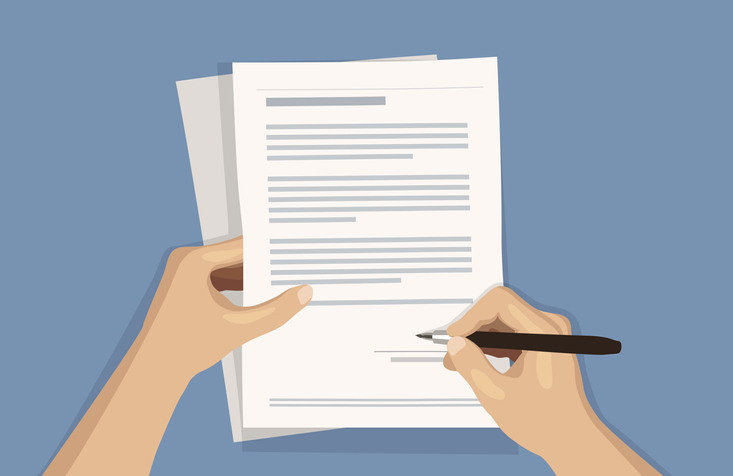To mark Dying Matters Week, Kate Anderson of Wright Hassall advises people of all ages on the things they should be thinking about when considering whether to write a will.

At what age can you write a will in the UK?
Although most people writing wills in the UK are older than 50, you can legally write a will from the age of 18 and there are many reasons to do so.
What happens if you don’t write a will?
A will controls how your ‘estate’ (your money, property and possessions) is dealt with and who benefits from it when you die. If you died without a valid will, then you would need to rely on the intestacy rules (written in law) and your wishes may not be carried out.
For example, if you were cohabiting and died without leaving a will, the intestacy rules would mean that the person you live with would not receive anything from your estate.
Why should you write a will?
While most people prepare wills for the likes of tax planning and making it easier for loved ones to deal with an estate on death, there are other reasons why you should make a will which could apply to people from a range of ages:
-
Children
If you have children who are under 18 years old, you could use your will to appoint a legal guardian. If you and the other parent both die the guardian could take over responsibility for your children. Guardianship can also be used to protect the position of parents who don’t have legal status, such as in surrogacy cases or same-sex parents.
The family court can also appoint guardians, and anyone can apply to become a guardian. Having a will in place, which appoints guardians, helps you to retain some control over the care of your children if you died.
-
Funeral wishes
In a will you can provide instructions concerning your funeral arrangements. For example, you might prefer to be cremated or buried, or wish to ensure that your religious practices are followed.
It is important to note that funeral wishes are not binding and therefore do not have to be followed by your executors (the person(s) dealing with your estate). They can, however, help avoid family disagreements or assist loved ones and reduce the stress involved in making these types of decisions.
-
Pets
You can nominate someone you trust to take care of your pet in your will. In addition, you could choose to leave money to the nominated person, so they would not be left out of pocket for the likes of food, grooming and veterinary expenses. This could be done by a trust or by a simple cash gift.
-
Specific gifts
Perhaps you have a family heirloom, such as wedding ring that you want your niece to inherit, or a collection of signed football shirts that you want your friend to receive. If you have any items that you want to go to specific people, a will can ensure this happens.
Instead of leaving a specific item, you may want to leave a set sum of money from your estate. A will also allows you to leave cash gifts like this and you could also choose to benefit charities in this way.
-
Digital assets
Digital assets could include photos, email accounts, social media accounts, cryptocurrencies, gaming accounts, music or film libraries and much more. They’re not physical possessions but they may still hold sentimental or monetary value. You could appoint a specific person to deal with these assets or make other specific provisions for them.
-
Protecting the inheritance
If you have a dispute with someone or are separated from a partner and you do not want them to benefit from your estate, you could make a will to ensure this is clearly stated and name who should benefit instead. It is possible your will could be contested; however, it helps to set out your wishes and intentions if a claim was made.
-
Property
Another consideration is if and how you own your property. If you and a partner own your home as ‘joint tenants’ and you died, your partner would automatically own your home in their sole name. However, if you own the property jointly as ‘tenants in common’ your share of the property would form part of your estate and would pass to your beneficiaries in accordance with your will or the intestacy rules.
Rights can also be included in wills to allow for individuals to be able to live in a property for specified periods of time. This could provide security for them to be able to live in the property whilst also ensuring the asset ultimately passes to your chosen beneficiaries.
It is therefore important to check the ownership of your property and consider preparing a will to ensure that your wishes regarding your property on your death are fulfilled.
When should you write a will?
In conclusion, rather than focusing on what age you should make a will, the best consideration is twofold: Firstly, you should review your overall wishes regarding your estate and secondly whether these wishes could be carried out effectively on your death, without a will.
About the author
Kate Anderson is a Chartered Legal Executive in the private client team at Wright Hassall.
See also
How to make or amend a will during the Coronavirus (COVID-19) lockdown
Should I write a new will or make a codicil?
Image: Getty Images
Publication date: 11 May 2020